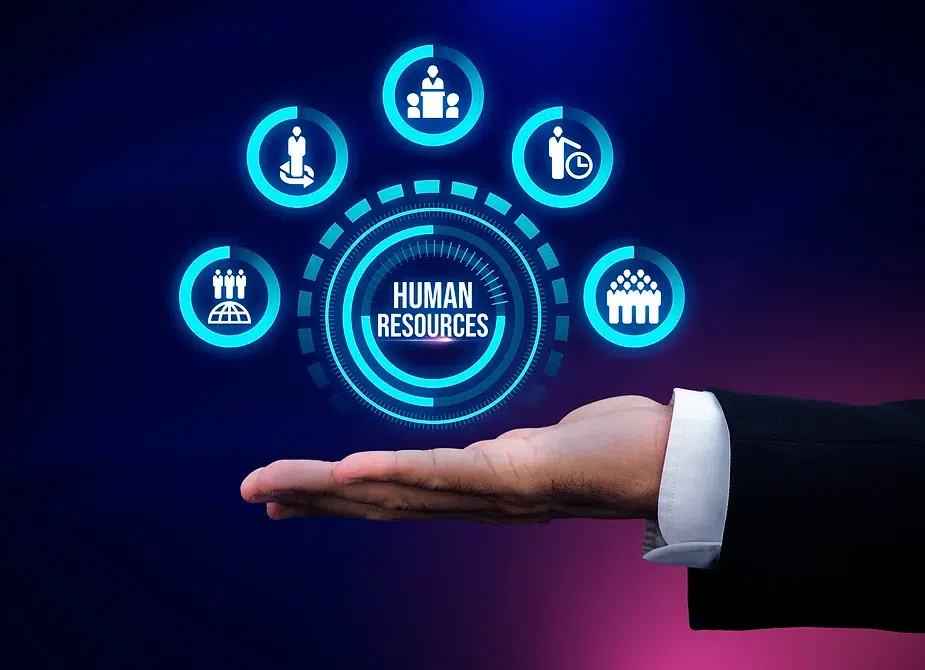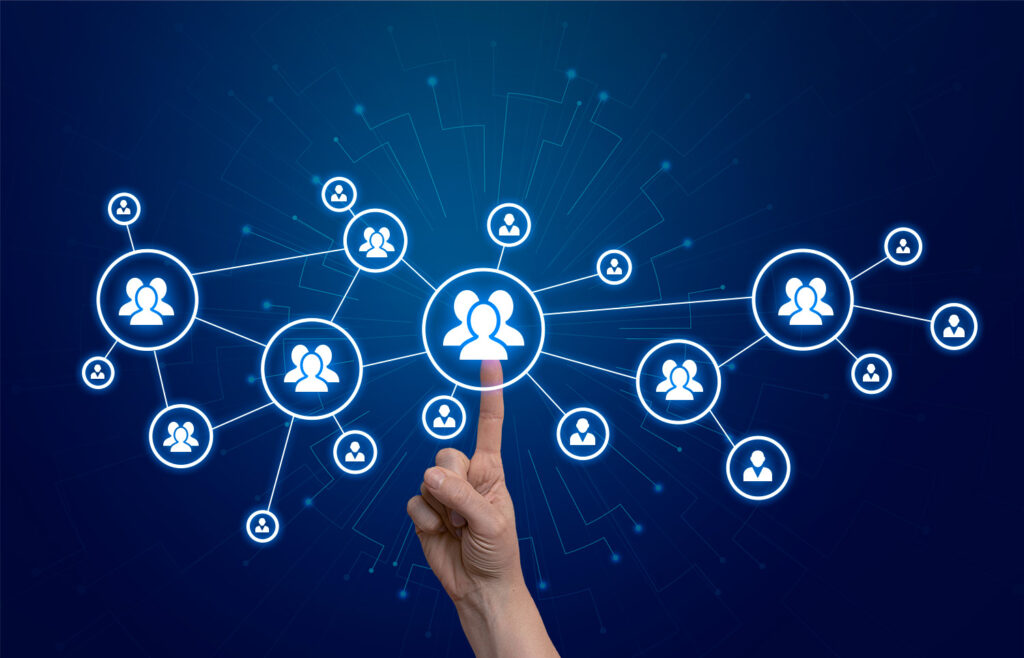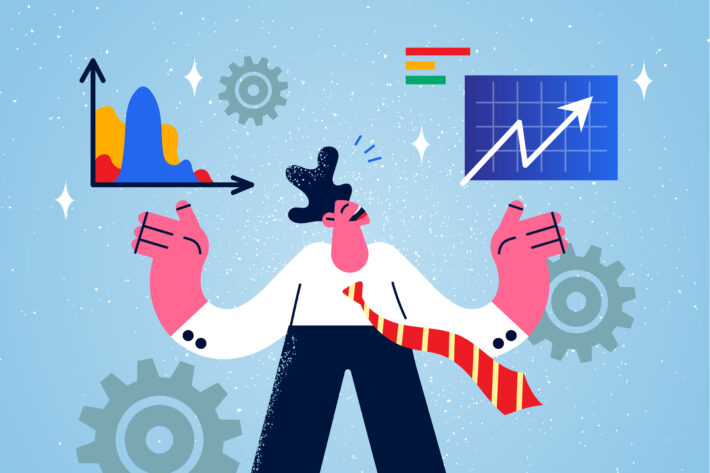Best HR Software Solutions for Modern Human Resources Teams

The world of human resources departments is getting an upgrade. As technology reshapes how we work, HR teams are adopting new HR software solutions to help them modernize recruiting, onboarding, payroll, benefits administration, and other critical functions.
Get ready to say goodbye to mountains of paperwork and hello to streamlined, automated processes. The mundane administrative tasks that once bogged HR teams down are now smoothly handled by intelligent technology. The future of HR is high-tech, efficient, and people focused. Welcome to HR 2.0!
What is HR Software?
Think of HR software as a digital helper for all things people-related in an organization. This clever technology is like a behind-the-scenes coordinator for the HR team, helping to organize employee information, streamline tasks, and provide insights.
With powerful features like applicant tracking, payroll processing, and self-service portals, HR software is automating the administrative side of human resources. This means HR folks get to focus less on paperwork and more on strategic initiatives like employee development.
Why is HR Software Important for Businesses?
HR software platforms provide a variety of features to help HR teams manage their workforce more efficiently. Some of the key capabilities that enable HR teams to work smarter are:
| Feature | Description |
| Employee Database Management | Centralizes employee data like contact info, employment history, skills, compensation etc. Makes it easy to access and update all data in one place. |
| Payroll Management | Automates payroll processing including calculating taxes, withholdings, PTO accruals etc. Saves significant time compared to doing payroll manually. |
| Time and Attendance Tracking | Enables managers and employees to track hours worked, PTO taken, lateness etc. Manager approvals and reporting built in. |
| Benefits Management | Streamlines managing health insurance, retirement plans, and other benefit programs including open enrollment. |
| Compliance Management | Supports legal compliance by securely storing personnel documents, I-9 verifications, sexual harassment training etc. |
| Analytics and Reporting | Advanced analysis, custom reports and data visualizations for metrics like turnover, compensation equity, performance trends etc. |
| Recruitment and Talent Management | Applicant tracking, talent pipelines, skills analysis. Some integrate assessments, background checks, e-signatures. |
| Employee Self-Service | Allows employees to access pay info, request time off, update contacts, enroll in benefits directly via online portal. |
| Customization | Tailor solutions to organization’s specific processes and terminology via configuration options. Some offer HR app marketplaces. |
| Document Management | Securely stores various employee document types like offer letters, NDAs, performance reviews etc. in one place. Role based permissions enable access. |
| Onboarding and Offboarding | Automates processes to bring new hires onboard and manage employee offboarding/terminations. Digitizes paperwork. |
| Performance Management | Streamlines goal setting, continuous feedback, performance reviews, and aligning employee goals. |
| Succession Planning | Tools to identify and develop high potential internal candidates for leadership roles. |
| Compensation Management | Supports pay strategy, salary benchmarking, and bonus allocation. Helps ensure internal equity. |
| Learning Management | Centralizes employee training programs and tracks completion of assignments, courses, etc. |
What are the different types of HR Tools?
There are various types of HR software designed to address different aspects of human resource management. Some common types include:
- Human Resources Information Systems (HRIS): HRIS focuses on the data management needs of an HR department.
- Human Resources Management Systems (HRMS): HRMS manages employee information throughout the employment lifecycle.
- Human Capital Management (HCM): HCM focuses on maximizing the value of human capital and contribution to organizational goals.
- Applicant Tracking Systems (ATS): ATS streamlines the hiring process by managing job postings, applicant data, and interview scheduling.
- Payroll Software: Handles salary calculations, tax deductions, and other financial aspects of employee compensation.
- Learning Management Systems (LMS): LMS manages training programs, e-learning courses, and employee skill development.
- Performance Management Systems: Focuses on setting goals, conducting performance reviews, and fostering employee development.
- Employee Self-Service (ESS) Systems: ESS empowers employees to manage personal information, benefits enrollment, and time-off requests independently.
- Time and Attendance Systems: Tracks employee work hours, attendance, and handles time-off requests.
- Benefits Administration Systems: Streamlines the administration of employee benefits, including enrollment and communication.
- Succession Planning Systems: Identifies and nurtures high-potential employees for future leadership roles.
- Employee Engagement Platforms: Measures and improves employee engagement through surveys, feedback tools, and analytics.
- Onboarding Solutions: Facilitates the onboarding process for new hires, ensuring a smooth integration into the organization.
While these types of HR software can be standalone solutions to address specific HR priorities, Companies can also adopt comprehensive platforms that centralize a wide array of workforce data and processes.

How can HR software benefit your company?
In today’s competitive landscape, HR software isn’t just a perk, it’s a strategic necessity. Here’s why it should be an integral part of your HR strategy:
Streamlined Efficiency:
- Automated tasks: Free up HR professionals from repetitive tasks like payroll, onboarding, and leave management, allowing them to focus on strategic initiatives like talent acquisition and development.
- Centralized data: Eliminate data silos and ensure everyone has access to accurate, real-time employee information, boosting decision-making.
- Improved accuracy: Reduce errors and inconsistencies with automated processes, saving time and money.
Enhanced Employee Experience:
- Self-service portals: Empower employees to manage their own information, request leave, and access company resources, fostering autonomy and engagement.
- Improved communication: Facilitate seamless communication through internal messaging, announcements, and feedback channels.
- Transparency and trust: Provide employees with clear access to information and processes, building trust and loyalty.
Data-driven Decision Making:
- Generate insightful reports: Gain valuable insights into workforce trends, performance metrics, and engagement levels to inform strategic decisions.
- Identify skill gaps: Utilize analytics to identify skills your employees possess and where there are gaps, informing training and development programs.
- Predict future needs: Analyze data to anticipate future workforce needs and make informed talent acquisition and retention strategies.
Regulatory Compliance:
- Stay updated: HR software is constantly updated to reflect the latest legal and regulatory changes, ensuring compliance and avoiding costly penalties.
- Streamlined audits: Simplify compliance audits with organized and readily available employee data.
- Reduce risk: Minimize potential legal issues with accurate record-keeping and automated processes.
Competitive Advantage:
- Attract top talent: Showcasing a modern HR approach with technology integration can attract and retain the best talent.
- Improve employer branding: Demonstrate your commitment to employee well-being and satisfaction, boosting your employer brand.
- Agile and adaptable: Respond effectively to changing market demands and workforce needs with a flexible and data-driven HR system.
Remember: The specific benefits you reap will depend on your unique needs and chosen software. However, incorporating HR software into your strategy is a powerful step towards a more efficient, engaged, and successful workforce.
How to Choose the Best HR Software for Your Business?
Searching for HR software is a lot like dating – you have to figure out exactly what you want in a partner before jumping into anything serious. And all that jazz is no easy task. So how you’re supposed to decide? Well, grab a coffee and read this quick guide to help make sense of the HR tech landscape.
- Know Your Biggest Problems: Firstly, before demoing every piece of software out there, sit down and think about your biggest pain points. Is it tracking employee PTO? Managing company culture? Surviving open enrollment without rage quitting? Pinpointing your priorities will help whittle down the thousands of options out there.
- Start Exploring Your Options: Next, make a list of must-haves for any new system you bring on. Make sure to gather feedback from different stakeholders across your organization, not just other HR peeps. How user-friendly does the platform seem for managers vs. employees? Does it play nice with your other tools? Key things to demo: core HR features, user experience, and support response times. So, when you have a promising contender, take things to the next level. Set up an extended free trial and integrate the software into your existing systems. Put it through its paces with real-world testing—heavy data loads, complex processes, the works. Examine how it performs under stress.
- Now comes decision time: Finally, consider the whole package – functionality, reliability, customer support availability, and of course, pricing. Factor in projected productivity gains and ROI. If everything aligns and your needs are met, it may be time to update your relationship status! Like any healthy relationship, carefully plan the launch so you start off on the right foot. Migrate data, customize flows, and train employees on using the software day-to-day. A bit of effort here makes the transition smooth.
Struggling to Find the Perfect HR Software? StaQ.ai to the Rescue!
Choosing the right HR software can feel like wading through a sea of options. But what if there was a smarter way? StaQ.ai is your one-stop shop for navigating the HR software landscape. Our innovative SaaS marketplace connects businesses with the perfect HR solution, tailored to their specific needs and budget.
Stop wasting time and resources on dead ends. Let StaQ.ai’s data-driven approach and expert recommendations simplify your HR software search. Visit StaQ.ai today and find the perfect fit for your team!



